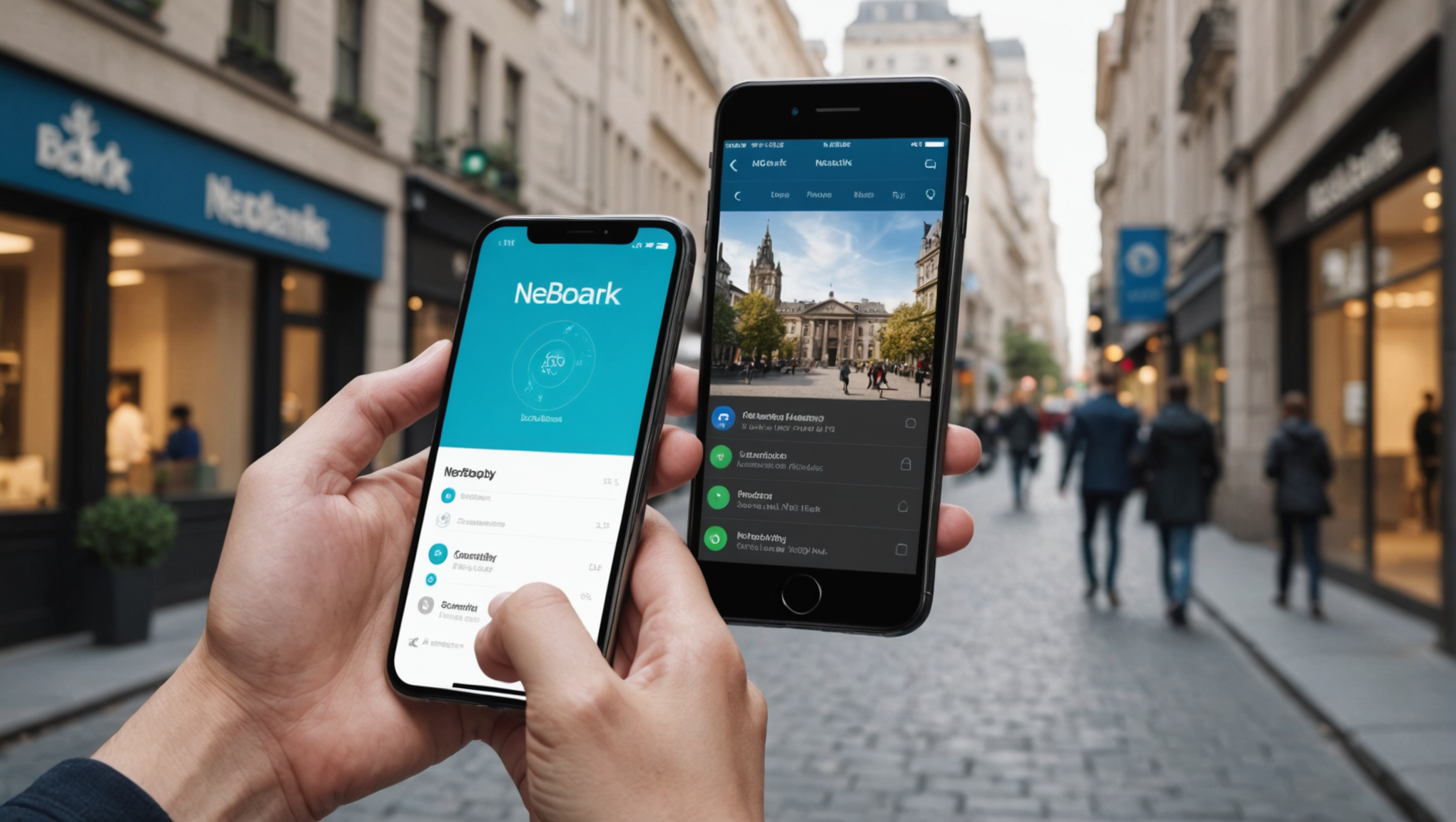Are you looking for innovative banking management? Look no further! Neobanks are on the rise and are attracting more and more interest. These new digital financial institutions have managed to stand out by democratizing access to a variety of simple financial services. From quick account opening to reduced fees, neobanks promise a revolutionary user experience while adapting to modern needs. However, advantages do not mean the absence of drawbacks. Indeed, while these banks offer particularly attractive rates, some limitations, such as the lack of loans or cash deposits, can raise questions.
This introduction explores in depth the unique features of neobanks and the elements that make them so appealing, while highlighting the grey areas that may concern future customers. Understanding this phenomenon is essential for anyone wishing to wisely navigate between the promises of fintech and the traditional values of conventional banks. So, what are you waiting for to dive into this exciting universe?

Table of Contents
ToggleNeobanks: Understanding the Advantages and Disadvantages of These Online Banks
In an increasingly connected world, neobanks attract a growing number of users thanks to their innovative offers and their digitized approach to finance. These online financial institutions, which do not have physical branches, provide a variety of services while promising lower fees compared to traditional banks. But what truly makes these banks different, and why do so many consumers trust them? This article examines their advantages and disadvantages in the current context, providing concrete elements to better understand this phenomenon.
Advantages of Neobanks: Unprecedented Accessibility and Agility
One of the most striking aspects of neobanks is undoubtedly their accessibility. Opening an account is often quick and easy, completed directly through a mobile application. A recent study conducted by KPMG revealed that 60% of neobank users opened their account in less than 10 minutes. Who would say no to such a promise of simplicity?
Another notable advantage concerns bank fees. Most neobanks charge lower fees than traditional banks, making them particularly appealing to young people and professionals on the go. For example, minimal account maintenance fees are common, not to mention reduced fees for international transactions based on interbank exchange rates, with no commission. Studies show that users can save 25% to 50% on their annual banking fees by opting for a neobank.
Neobanks also stand out for their innovative services tailored to a modern lifestyle. Many solutions such as expense analysis, real-time financial advice, and instant notifications when transactions occur provide a clear view of one’s financial health. A study commissioned by the EBF highlighted that 70% of neobank users feel better informed about their finances compared to their previous banking experiences.
Disadvantages of Neobanks: Limitations and Precautions to Consider
Despite undeniable benefits, neobanks are not without drawbacks. One important aspect to consider is the fact that they generally do not offer the same comprehensive services as traditional banks. For instance, most neobanks do not provide loans or cash deposits, which can pose a problem for some clients. In 2023, a survey revealed that 40% of neobank users had difficulties obtaining a personal loan, a service they could have easily acquired from a traditional bank.

Another point to highlight is the safety of deposits. Neobanks, being payment institutions rather than credit institutions, may not necessarily have the same insurance as traditional banks. In France, for example, the deposit guarantee limit for bank deposits is €100,000. Neobanks may offer similar guarantees, but regulations may vary. This is a crucial element that consumers need to pay attention to.
Finally, the absence of physical branches may also represent a disadvantage for some. For customers who prefer human interactions, personalized advice, or simply having a physical contact, the neobank model may be perceived as limited. A recent study estimated that 30% of potential customers believe that the lack of branches could hinder their adoption of a neobank.
Future Perspectives of Neobanks: A Revolution Ahead
As fintech continues to transform the banking landscape, neobanks remain at the forefront. The growth of the neobank market is also fueled by the rise of online payments, leading to increased demand for practical and accessible solutions. Companies like Revolut and N26 have become references that are encouraging more and more consumers to change their banking habits.
Looking forward to 2024, some experts anticipate that neobanks will develop new services, such as savings products tailored to contemporary needs or even more automated financial management solutions. Innovations in the field of cryptocurrencies and blockchain also promise new efficiencies in transaction management.
For those considering entering the world of neobanks, it is advisable to explore the available options and to fully understand the services offered, notably through online comparators and customer feedback. Don’t hesitate to consult detailed resources like the 10 best online banks or the analysis on their advantages and disadvantages.
💳 La néobanque la plus utilisée est: Bankin' !
— hiboo.expert (@hibooexpert) June 1, 2024
Vous êtes client ? pic.twitter.com/ISuR5VoK7F
FAQ on Neobanks
1. What is a neobank?
A neobank is a 100% digital bank that operates via a mobile application or an online interface. Unlike traditional banks, neobanks do not have physical branches, allowing them to provide services that are often faster and cheaper.
2. What is the difference between a neobank and an online bank?
Neobanks are fully mobile and do not have physical infrastructures, while online banks are digital extensions of traditional banks. Neobanks focus on mobile user experience, with simplified interfaces and innovative financial services.
3. What are the advantages of a neobank?
Neobanks typically offer lower fees, more intuitive account management via a mobile application, real-time notifications for each transaction, simplified account opening, and features like expense analysis or automated savings.
4. Are neobanks secure?
Yes, neobanks use advanced encryption technologies to protect user data and comply with the same financial regulations as traditional banks in Europe, such as the Second Payment Services Directive (PSD2). Additionally, many offer extra security tools like two-factor authentication and instant card freezing.
5. How to open an account with a neobank?
Opening an account with a neobank is generally quick and completely online. You just need to download the neobank’s app, fill in some personal information, provide an ID, and follow the steps to validate the registration.
6. What are the main neobanks in France and Europe?
In France and Europe, popular neobanks include N26, Revolut, Bunq, Monzo (UK), Qonto (for professionals), and Orange Bank. Each neobank is distinguished by its specific services and pricing offers.
7. Can you get a bank card with a neobank?
Yes, most neobanks offer a bank card (physical or virtual) linked to your account, often a Mastercard or Visa. Some cards are free, while others may come with fees and premium benefits (insurance, fee-free international withdrawals, etc.).
8. Do neobanks offer loans or credits?
Some neobanks offer loan or credit services, but this varies by institution. Revolut, for example, has started to offer personal loans in some countries. However, these services are less common than in traditional banks.
9. Can you receive your salary in a neobank?
Yes, you can have your salary directly transferred to your neobank account. These accounts generally have an IBAN, often European (like the German IBAN at N26), which can be used for SEPA transfers in Europe.
10. What are the disadvantages of a neobank?
Neobanks may have limitations such as the absence of physical services, a lack of variety in financial products (loans, life insurance, etc.), and sometimes customer support only available online or through chat. Additionally, some do not offer an overdraft facility.
11. Are neobanks suitable for professionals?
Some neobanks, such as Qonto or Shine, are specifically designed for professionals and freelancers. They offer adapted services like invoice management, multi-user cards, and an interface to track business expenses.
12. Are neobanks regulated by banking authorities?
Yes, neobanks operating in Europe are generally regulated by financial authorities such as the European Central Bank or national regulators. They must comply with applicable laws, especially regarding anti-money laundering and data protection.





